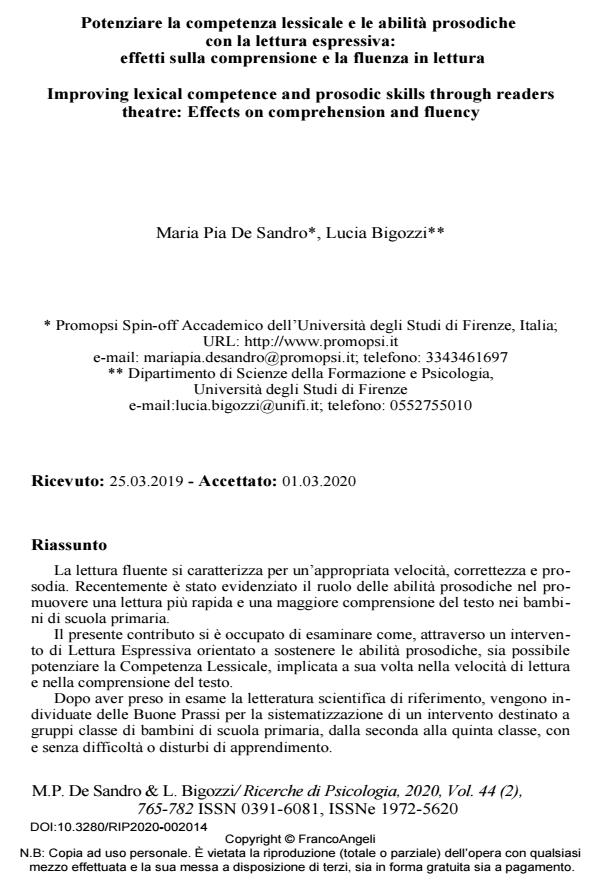Improving lexical competence and prosodic skills through readers theatre: Effects on comprehension and fluency
Journal title RICERCHE DI PSICOLOGIA
Author/s Maria Pia De Sandro, Lucia Bigozzi
Publishing Year 2020 Issue 2020/2
Language Italian Pages 18 P. 765-782 File size 241 KB
DOI 10.3280/RIP2020-002014
DOI is like a bar code for intellectual property: to have more infomation
click here
Below, you can see the article first page
If you want to buy this article in PDF format, you can do it, following the instructions to buy download credits

FrancoAngeli is member of Publishers International Linking Association, Inc (PILA), a not-for-profit association which run the CrossRef service enabling links to and from online scholarly content.
Fluent reading features appropriate speed, accuracy and prosody. Recently it has been highlighted the role of the prosodic skills to promote a faster reading and better comprehension for children in primary school. The purpose of this study is to analyze how to enhance lexical competence, involved in reading speed and deeper comprehension of the text, through Readers Theatre focusing on prosodic skills. After considering the scientific literature in the field, this study identifies Good Practises for the systematization of the intervention aimed to groups of children from second to fifth grade, with or without learning difficulties or disabilities.
Keywords: Readers theatre, lexical competence, fluency, reading, prosody, reading comprehension.
- THE RELATIONSHIP BETWEEN INFERENTIAL PROCESSING AND TEXT PROCESSING: A DEVELOPMENTAL STUDY Agata Maltese, Annamaria Pepi, Lidia Scifo, in Problems of Psychology in the 21st Century /2012 pp.21
DOI: 10.33225/ppc/12.02.21
Maria Pia De Sandro, Lucia Bigozzi, Potenziare la competenza lessicale e le abilità prosodiche con la lettura espressiva: effetti sulla comprensione e la fluenza in lettura in "RICERCHE DI PSICOLOGIA " 2/2020, pp 765-782, DOI: 10.3280/RIP2020-002014